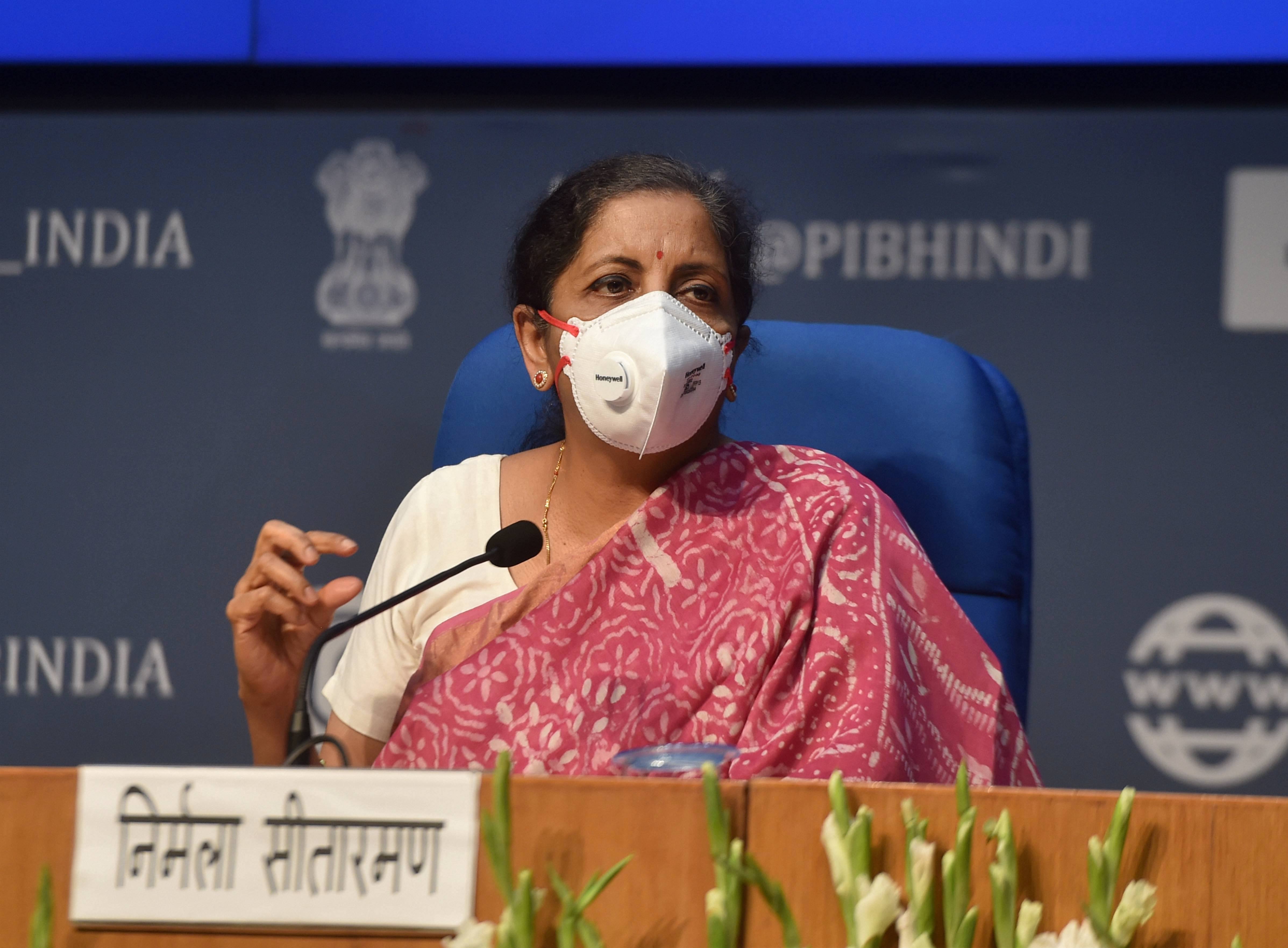Prime Minister Narendra Modi will on Saturday launch a Rs 50,000 crore employment scheme to provide income support to migrant workers who returned to their home states during the coronavirus lockdown.
The 'Garib Kalyan Rojgar Abhiyan' will primarily focus on six states where maximum migrant workers have returned.
This massive rural public works scheme will empower and provide livelihood for 125 days to the returnee migrants, Finance Minister Nirmala Sitharaman said on Thursday at a curtain-raiser press briefing on the initiative.
Prime Minister Modi will launch the scheme through video conferencing in the presence of Bihar Chief Minister Nitish Kumar and Deputy Chief Minister Sushil Modi.
The programme will be launched from village Telihar, block Beldaur of Khagaria district of Bihar, which will go for assembly polls later this year.
A total of 116 districts with more than 25,000 migrant workers each across Bihar, Uttar Pradesh, Madhya Pradesh, Rajasthan, Jharkhand and Odisha have been chosen for the campaign which includes 27 aspirational districts, Sitharaman said.
These districts are estimated to cover about two-thirds of such migrant workers.
Villages across 116 districts in the six states will join the launch event through Common Service Centres (CSCs) and Krishi Vigyan Kendras, maintaining the norms of social distancing in the wake of the COVID-19 pandemic.
This campaign of 125 days, which will work in mission mode, will involve intensified and focused implementation of 25 different types of works to provide employment to migrant workers on one hand and create infrastructure in the rural regions of the country on the other, with a resource envelope of Rs 50,000 crore.
"This (Rs 50,000 crore) is part of the Budget. What is the key thing about this...we are bringing convergence, we are frontloading the money.
"The other key thing is it is directly tying up with all the migrant workers who have reached their districts...all of them are going to result in asset creation," Sitharaman said.
The scheme will be a coordinated effort by 12 different ministries, including rural development, panchayati raj, road transport and highways, mines, drinking water and sanitation, environment, railways, petroleum and natural gas, new and renewable energy, telecom and agriculture.
So 25 schemes of the government are all going to be brought together and these workers would help build gram panchayat bhawans and aganwadi centres, National Highway works, railway works and water conservation projects, among others, she said.
"We want to frontload the money allotted for these 25 different works for those 116 (districts) and ensure that all those migrants in those districts are going to be given employment," she said.
Asked why West Bengal was not included in this initiative, Rural Development Secretary N N Sinha said when the programme was drawn up, the state did not provide the number of migrants who had returned.
"There is no bar to other districts (with at least 25,000 migrant workers) joining in this initiative. If we get the numbers, we will certainly include them in the future," he said.
To a question on whether the programme will be extended beyond 125 days, Sitharaman said, "For the moment we are giving them a clear, concrete blueprint for engagement for four months. As we go along, we have to see how many continue to stay...the government has come with this comprehensive blueprint that they are immediately provided a livelihood...we have to take it as we go along."
She further said as many as 32 districts of Bihar and 31 districts of Uttar Pradesh are part of this initiative.
Speaking at the event, Labour Minister Santosh Gangwar said, "You must have heard news about Punjab that now workers are being called back to work with rail tickets."
He said as the situation normalises further, things would move in a positive direction











